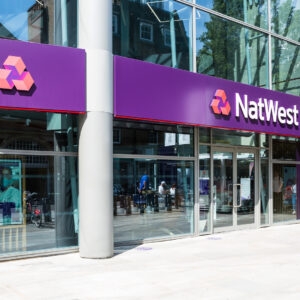
Is the UK prepared for the US invasion?
Dippy Singh | News
28 Feb 2020
Think back to the aftermath of the credit crunch, and you may have vivid memories of US banks exiting the UK market faster than the speed of light as the crisis spread.
But a decade on, the American banks appear to be rediscovering their appetite for a piece of the UK retail market.
This month, JP Morgan Chase became the latest US financial group to enter the UK retail market, when reports surfaced that it was establishing its own UK digital bank offering loans and savings. The bank is believed to be officially launching in Summer 2020.
Like many of its rivals, JP Morgan is seemingly keen to get a toe-hold in the potentially profitable British banking landscape. The move follows Morgan Stanley’s recent acquisition of retail trading platform E-Trade for $13 billion.
In 2018, Goldman Sachs launched its own UK proposition with the brand Marcus, offering easy-access savings accounts. The brand now has over 300,000 customers.
However, with other US players like Citi retreating from the UK in the wake of the credit crisis (think Future Mortgages, Citi Financial and Egg), what has changed to instigate this US invasion of the UK retail banking market?
Speaking at the time of its launch, Des McDaid, managing director at Marcus by Goldman Sachs, said its desire to enter the UK market was all about offering better savings, suggesting it was keen to capitalise on the low interest rates being offered by UK high street banks.
“Over the past decade savers have been on the wrong end of low interest rates,” he explained in a media announcement.
“We’ve spoken in-depth to people across the country and there is a real disillusionment about savings – while most UK adults are diligently trying to save every month, some do not even have a savings account, with low interest rates and complexity being put to blame.”
The real reason
While there may be a desire to ‘do good’ and offer UK consumers a better deal, there is a stronger, commercial reason too.
The UK offers an easier alternative than the US when it comes to operating in the lucrative Open Banking market and cash in UK consumer savings accounts is among the “stickiest” of assets that a financial group could wish for.
In the US, the Open Banking movement has developed at a slower pace, not least because of the complex regulatory regime where US banks have to navigate myriad regulatory bodies. That compares with just two regulators in the UK, making the country an appealing proposition for US banking giants keen to take advantage of the open data revolution. The boom in digital banking in the UK will not have gone unnoticed by US banks either.
A 2019 report by technology data specialist CACI, which explored the growth of digital banking, revealed that for the first time, there are more people in the UK managing their bank accounts digitally than managing them through internet banking, with 25 million customers – half the country – now banking via mobile devices.
According to the report, more than half (56 per cent) of UK savings accounts – a key area US banks are targeting – are opened via websites and in-app.
“This digital trend is set to grow, with more than three quarters of new savings accounts expected to come from online channels by 2024,” CACI researchers concluded.
“It’s fair to say that digital-only challenger banks have established a foothold in the UK current account market.”
The findings echoed a similar report by McKinsey & Co last year, entitled ‘Succeeding in the new retail banking landscape.’ The McKinsey report found that one UK bank was making more than 50 per cent of its sales through digital channels, well ahead of its market peers.
“The banking relationship is fragmenting even faster in countries with higher digital adoption, such as the Netherlands and the UK, where the percentage of customers that use more than two providers has increased by 20 per cent over the past five years,” it stated.
“This decline of customer loyalty provides a perfect context for firms seeking to enter banking in a selective way—focusing on the most profitable segments.”
Try and try again
JP Morgan’s attempt at offering digital banking in its home country didn’t quite take off. The group decided to shutter its US mobile brand Finn after just one year. However, the business will have learnt an enormous amount from the endeavour.
Now, the bank clearly believes the UK is a good fit to try again, especially when you consider the massive growth achieved by challenger banks such as Monzo, Revolut and Starling.
Figures from Accenture reveal digital banks operating in the UK acquired more than six million new customers in the second half of 2019, taking their global total to nearly 20 million customers – representing a near tripling of their customer base in a year.
However, this rate of growth is slowing, as more players enter the UK digital banking sector and saturate the market. As such, the creeping presence of the US banks may only make this tough, competitive market even tougher.
According to Accenture, digital banks’ customer growth rate dropped 20 per cent in the second half of 2019, while the average deposit balance decreased £350 to £260 per customer.
“The fall in average deposits points to their [digital banks’] current struggle to consistently replace incumbent banks as the primary destination for monthly salaries,” Tom Merry, strategy managing director at Accenture, noted.
No easy ride
Of course, banking giants like JP Morgan and Morgan Stanley certainly have the resources and capital to give the traditional UK banks a run for their money. But with these big US fishes dipping into the UK pond, will they push out the smaller players. Also, will they curtail further innovation and competition in UK retail and digital banking sector?
The UK landscape no easy feat for lenders, with even the biggest banks facing a squeeze on profits – fuelled by increasing regulatory costs and banking levies imposed since the credit crisis. So, there is plenty of room for collaboration between the leading players. As for what this mini US ambush means for Open Banking, commentators believe it offers more an opportunity than a threat.
“I don’t think that Open Banking is the primary reason for JP Morgan Chase’s and Goldman Sachs’ initiatives,” Frederik Mennes, director of product at US-based tech service provider OneSpan, said.
“However, since the UK is the leading country globally for Open Banking, being present in the UK can help them to learn about Open Banking, which is a useful experience for the rest of the world.”








